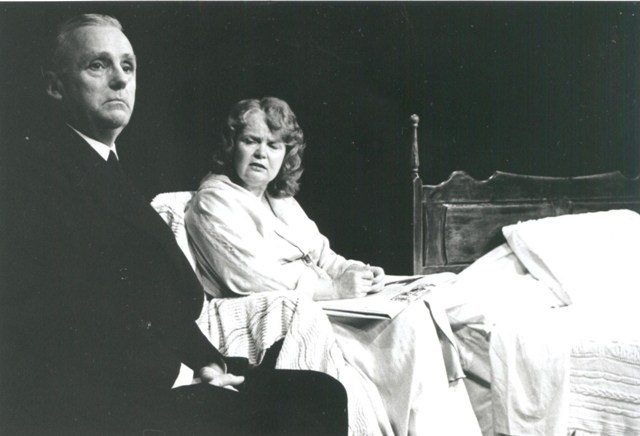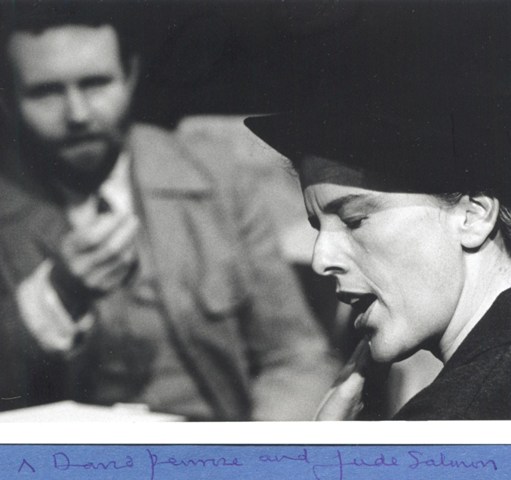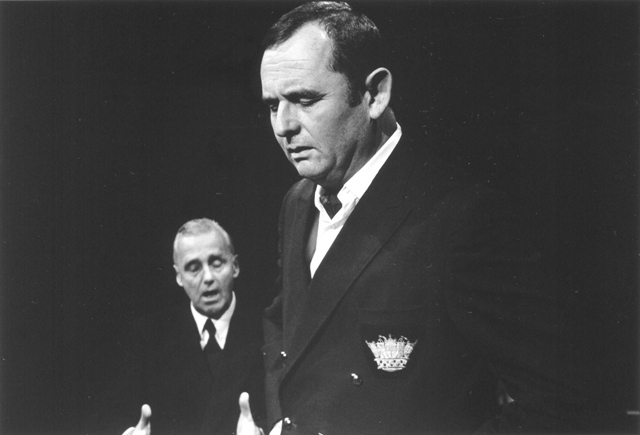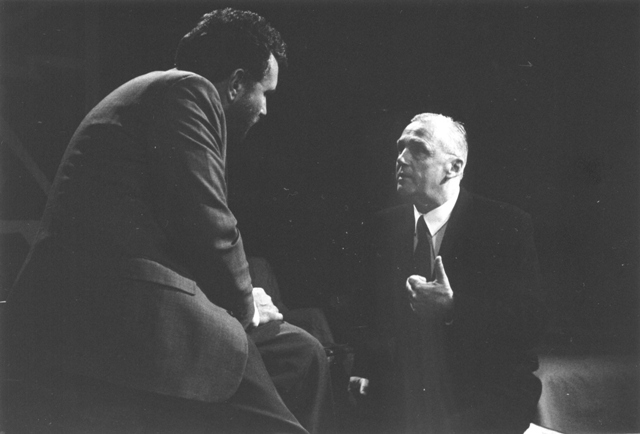The Bench Production
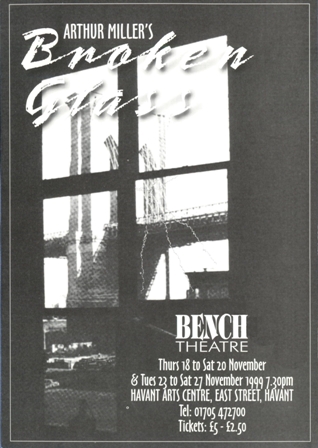
This play was staged at Havant Arts Centre, East Street Havant - Bench Theatre's home since 1977.
Characters
| Philip Gellburg | Pete Woodward |
| Margaret Hyman | Sharman Callam |
| Dr Harry Hyman | David Penrose |
| Harriet, Sylvia's sister | Jude Salmon |
| Sylvia Gellburg | Ingrid Corrigan |
| Stanton Case | Alan Welton |
Crew
| Director | John Batstone |
| Stage Managers | Sam Emery Zoë Corrigan |
| Lighting Design | Jacquie Penrose |
| Lighting Operation | Paul Millington |
| Poster and Leaflet Design | Pete Woodward |
| Front of House | Derek Callam |
Director's Notes
For all the talk of the shrinking planet and the global village, from the comparative comfort and distance of our capitalist democracy it is not too difficult to say "Sarajevo - so?", "Rwanda - so?" and now, "East Timor - so?" But as human beings we make enough of an engagement to empathise with Sylvia Gellburg in this play who has apparently been shocked into paralysis by the news of the humiliations and man's inhumanity to man filtering through to 1930s New York from Nazi Germany.
In 'Death of a Salesman', Willy Loman, with seeming candour, invites the clever lawyer son of his neighbour to explain where it's all gone wrong. Bernard replies, "Sometimes Willy, it's better for a man just to walk away." Quite literally, Sylvia can't walk away and the crisis is played out in her life and in the lives of those closest to her.
If she is imprisoned in her wheelchair, her husband is locked inside his own mind. Before fixing on 'Death of a Salesman' as his title for the earlier play, Miller had toyed with the title 'The Inside of his Head'. Now in this, his most recent play, the title would serve equally well, at least for a considerable part, for 'Broken Glass' Philip Gellburg is in denial; of his own Jewishness, his marriage and indeed his own name. He will not look in the mirror, he has in effect broken the glass; his responsibility in the sexual side of his marriage is a self-justifying tangle of evasion and crucially for a Miller hero, he is uncomfortable with his name, "It's Gellburg, not Goldberg, G-e-l-l-b-u-r-g. It's the only one in the phone book."
Elsewhere, the salesman refuses to accept that he is 'Willy Loman, a dime a dozen'; Joe Keller must come to terms with the fact that all the young pilots who flew those P40s with the cracked cylinder heads are all (his) sons, even if they don't bear his name. In 'The Crucible', John Proctor is only ready to die when he is able to say "How may I live without my name?" It is doubtful if Gellburg ever reaches this state, certainly too late to save his marriage.
These notes may serve to indicate that in this play America's leading living playwright has brought together in highly concentrated form so many of the pre-occupations, public and private, that have filled his plays over more that fifty years. The scale is small, the scope is vast.
Clearly a serious play, it is not a solemn one. Miller in his 80th year has not lost his ear for vigorous dialogue, dry humour, and an ability to convey the texture of post-Depression New York. We may not know precisely the devious strategies that whirl around Gellburg's head, but we do know that he buys his shorts at Wannamaker's.
John Batstone
